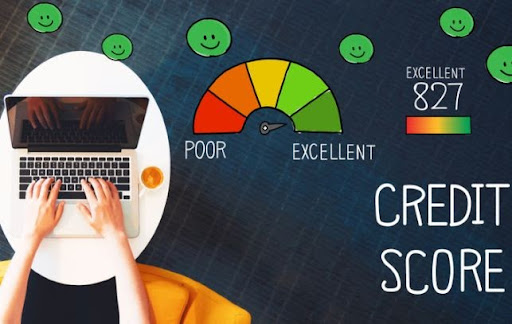There are some basics of credit scores and what they mean.
If you’ve had any consumer credit, like a credit card, car loan or personal line of credit, the details are recorded in the credit bureau. This is a quick and efficient way for lenders to see if you are a reliable borrower.
The Types of Credit You Have
The Types of Credit You Have
The first step towards understanding your credit bureau information is looking at the various types of credit and debt you may have. Each one affects your credit rating differently, including the way you choose to manage them.
Throughout your life, you may incur some of the following:
- Personal Loans: a loan you might get to help pay for a car or home renovation.
- Credit Cards: a card with a credit limit on which you make payments.
- Mortgages: a secured loan to help cover the cost of owning a home.
- Lines of Credit: a flexible way to borrow money up to a certain limit.
There are other types of credit you may obtain (like payday loans, which we do not recommend), but these are by and large the most common. Even so, managing credit and debt can be difficult no matter what financial situation you’re in, and they can affect your credit bureau standing in different ways.
Making On-Time Credit & Loan Payments
The #1 way to maintain a healthy credit bureau standing is making on-time payments.
Whether it’s a credit card, mortgage or car loan, making payments is the most direct way to affect your credit rating. Unfortunately, the same is true when you don’t make payments.
When you miss a payment for over 30 days, your lender may report this to the credit bureau. As a result, it will leave a derogatory note on your credit report for up to 6 years and lower your credit rating. In some cases, your lender may also charge penalty fees.
How Long You’ve Been Holding Credit
Potential lenders are interested as to whether you will honor your borrowing obligations especially over a long period of time.
Long-term credit management shows potential lenders that you’re responsible with your money—you know how to budget and prioritize, making you a “safe” person to lend money to.
There are a few different tricks you can use to improve your credit score with long-term payments. For example, even if you’ve paid off a credit card, you might not need to cancel it just yet—holding on to that card as an unused credit source may look good on your credit history.
Credit Inquiries
Speaking of your credit history, credit inquiries can also affect your credit rating..
Credit report inquiries are routine checks lenders make to ensure you are someone they want to lend money to. These requests may have some negative effect on your credit rating, but these enquiries only last for two years.
There are 2 types of inquiries: hard inquiries and soft inquiries. Hard inquiries are what lenders request when they want to see your credit report, and soft inquiries can happen when you check your own credit report. Your credit rating is only affected by hard inquiries.
However, if you’re looking for a loan and jump from lender to lender or car dealer to car dealer, these inquiries could negatively affect your credit rating pretty quickly.

Bankruptcy & Defaults
Bankruptcy and defaulting on credit will have the most impact on your credit rating, making it extremely difficult to borrow money in the future. These issues essentially indicate to lenders that you are not a reliable borrower.
The good news is that credit bureaus will remove derogatory information from your credit report after six years from the last transaction date.
What Won’t Affect Your Credit Score?
Using a Debit Card
The money on your debit card is your money from your bank account. You’re free to use this money however you wish and it won’t negatively effect on your credit rating.
However, the money in your bank account is also the money you’ll use to pay off your debts. By developing a financial plan that includes your payments and living expenses, you can start building a financial reserve. Your bank account, with your money, needs to serve you well. Make a savings plan, expense plan and retirement plan and manage these wisely.
Denied Loan or Credit Applications
Getting denied for a loan or credit application can be frustrating, but it may not affect your credit rating. Generally, it may only impair your rating due to the inquiry the lender made.
If you’re denied a loan, mortgage, or credit card, you may need to allow more time for derogatory information to purge.
Being Married or Divorced
One person’s credit rating doesn’t affect the others; these are entirely individual and do not reflect on the other person at all.
That said, co-signing a loan or opening a joint account with overdraft privileges will absolutely affect the credit rating of both partners.
Rent & Utility Payments
Your rent, utilities, and food costs don’t affect your credit rating unless you fall into arrears and the accounts are sent to a collection agency. Collection agencies are ‘recording members’ of credit bureaus just like banks and loan companies. Hopefully you will be using your bank account card to immediately pay for living expenses and not your credit card notwithstanding credit card promotions to use your credit card for everything.
If you’re relying on a credit to pay for most things and then making only minimum payments, it might be time to start looking for strategies to better manage your money with the help of our credit counselling services or debt repayment plans.
If you’re struggling with money management, then now is the time to start course-correcting and get back to enjoying a debt-free life. A.C. Waring & Associates Inc. is proud to offer several services to help get your finances under control, including credit counselling and consumer proposal filing.





